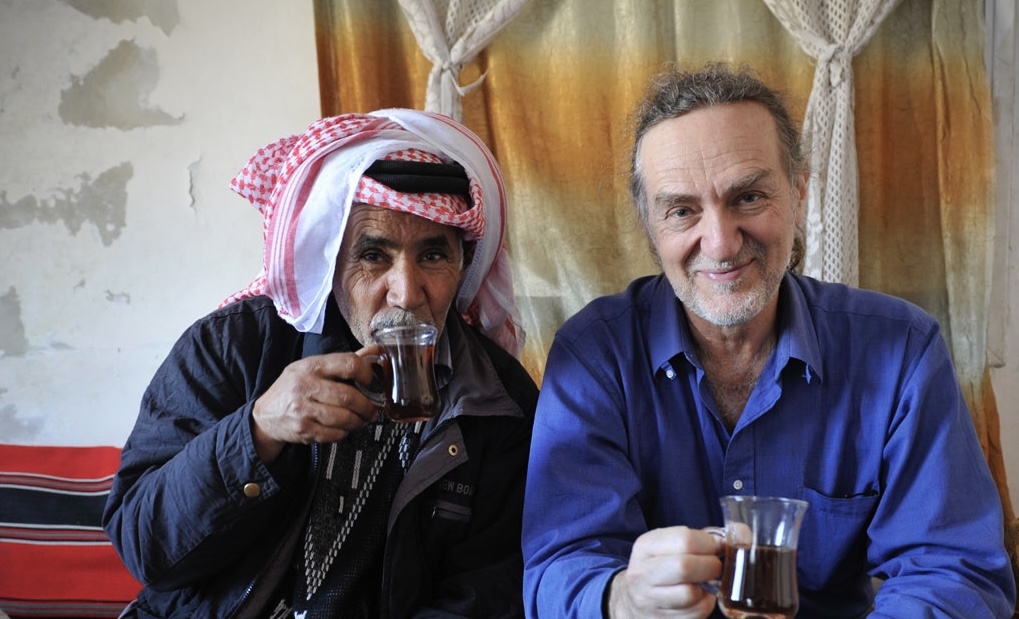For Milgrom, only hatred and intolerance win in war. Fasting and prayer on 17 October
A member of Rabbis for Human Rights, Milgrom is concerned about a possible ground operation in Gaza that would have a "high" cost in terms of lives, like in Lebanon. Despite the brutality of attacks and kidnappings, and the fear of new attacks, "We cannot fuel the spiral of violence". Meanwhile, Patriarch Pizzaballa has called for a day of fasting and prayer to draw strength and “deliver to God the Father our thirst for peace, justice, and reconciliation.”
Jerusalem (AsiaNews) – Jeremy Milgrom, an Israeli rabbi and a member of the NGO Rabbis for Human Rights, spoke to AsiaNews about the spiral of violence set off by Hamas’s attack on Israel and increasingly heavy human toll it is taking.
He is “frightened" for a possible escalation by the Israeli army, with the military "ready to enter Gaza" and fears that the price to pay will be "high" in "human lives" like when "we occupied Lebanon".
At the same time, he is "worried" about Israel’s public opinion that looks at "more radical solutions" amid a climate of “less tolerance”.
“I hope to be able to go back to sleep soon without having to worry about preparing a bag to take to the shelter in case of an alarm,” he said.
Looking back at the frantic hours last Saturday, with rockets from Gaza and the militants’ attack on Israeli territory, the pro-peace rabbi remembers the “terrible shock”.
“My partner warned me about rockets and the activation Iron Dome defence shield; it was clear that something big was happening. A few hours later we went into the bunker.
"I did not want to look at the tragic images of the violence but I heard rumours of terrible massacres, of more and more victims and people still dying in Gaza, as in Israel.”
The attackers "managed to bypass the barriers", storming “army bases”, killing soldiers and civilians. This was brutal “for them it was important not only to kill, but also to kidnap" to have "hostages as a weapon of extortion.”
Now, from a practical point of view it will be more difficult to work for dialogue and look for a way to convince Israelis to reach peace, to continue talks, to live with the Palestinians because "they think they are capable of these barbaric acts and it is terrible".
"Many people have died and many more victims will be added,” Rabbi Milgrom. “The more there are, the more complicated it will be to resume the path of dialogue; anger, fear, desire for revenge will be added."
In an attempt to point to a way towards peace amid a conflict that is becoming increasingly bloody, especially for civilians (on both sides), the patriarch of Jerusalem of the Latins has called for a day of fasting and prayer for Tuesday, 17 October.
“The pain and dismay at what is happening is great,” writes Patriarch Pierbattista Pizzaballa, who just got back to the Holy Land after he was formally appointed cardinal.
“Once again, we find ourselves in the midst of a political and military crisis. We have suddenly been catapulted into a sea of unprecedented violence.”
“The hatred, which we have unfortunately already been experiencing for too long, will increase even more, and the ensuing spiral of violence will create more destruction. Everything seems to speak of death.”
In this phase of violence, war, pain and dismay, the last word cannot be left to death; for this reason, "we feel the need to pray" in order to draw “strength and serenity".
On behalf of the Ordinaries of the Holy Land, Patriarch Pizzaballa urges parishes and religious communities to hold a day of fasting, abstinence and prayer even if the situation does not allow "the meeting of large gatherings".
"[I]t is possible to organise simple and sober common moments of prayer in parishes, religious communities, and families [. . .] to deliver to God the Father our thirst for peace, justice, and reconciliation.”
Violence begets a desire for revenge, Rabbi Milgrom laments, just as the attempt to "justify" this attack "will have consequences", which is why "we must all look even more at solutions that reject violence, finding alternative ways to barbaric behaviour.”
At this stage, he notes, “We should be able to reach a ceasefire and the release of the hostages, which is why it is important to continue the work of dialogue and understanding that is more difficult in the immediate future.”
Ultimately, “There will always be hope, even when something terrible happens, but we can and must learn the lesson. We cannot fuel this spiral of violence, even if I fear, in the immediate future, choices will be worse, not better" and the prospects for peace driven to the margins.
21/05/2021 18:39
15/06/2021 13:37
27/10/2023 15:23







.png)










